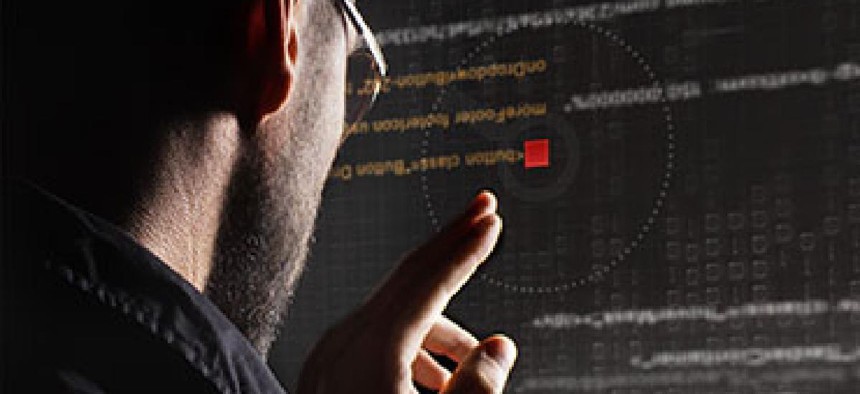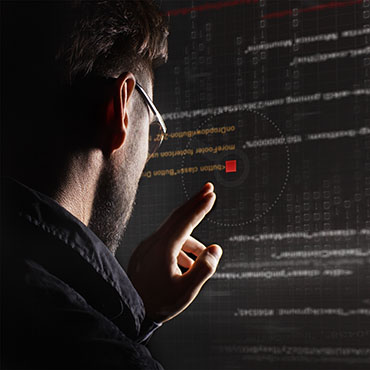Training the next generation of cyber specialists

The U.S. Cyber Challenge offers some of the country's top cyber professionals an immersive opportunity for instruction, hands-on experience and exposure to professional opportunities.

CEDAR CITY, UTAH -- Nearly 30 of the country's premier cyber specialists converged at Southern Utah University to take part in the Western Regional U.S. Cyber Challenge competition. After four days of intensive instruction interspersed with hands-on sessions, the specialists were divided into teams to test their skills against fellow whizzes.
The competition was a cyber version of capture the flag.
The four-hour endurance test, which entails penetrating computer systems and answering esoteric questions about cybersecurity, resembles a sort of hacker trivia challenge, said Josh Chin, lead teaching assistant for the Western Regional competition.
"Solid capture-the-flag teams illustrate beyond just technical skills," Chin told FCW. "They excel in critical thinking, being able to create and devise solutions under high pressure and stress, communicating with team members and the ability to solve complex problems."
Capture the flag is the capstone event of each camp, Chin added, but the real substance takes place during the preceding four days.
This year, three regional cyber challenges were held at colleges in Delaware, Illinois and Utah. Would-be participants qualified for invitation by excelling on graded entrance exams.
"The overall goal [of the challenges] is to identify the individuals who already have a certain level of skills and to streamline them into these gaps in the workforce," said Katie Hanson, USCC's communications coordinator.
Those interested in technology careers "can go through the more formalized education route, and we're excited about universities building" robust educational programs, she added. "But we also realize there are a lot of people teaching themselves this stuff, and we don't want them to feel discouraged because they didn't go to these [cyber-specific] schools."
Each day, the participants, who range from 18-year-old undergraduate students to middle-aged adults with families and established careers, attend lectures on various topics from 8:00 a.m. to 5:00 p.m. The sessions touch on everything from the technical minutia of penetration testing to packet crafting and hacking decorum.
In lab sessions throughout the week, participants test their newly acquired knowledge. The hands-on exercises pertain to each day's lectures and give participants real-world testing that they might not receive in a traditional classroom setting.
The labs go "one step further than formal education," Hanson said. "That's the feedback we get [from participants]: 'We like the hands-on stuff. We like testing our skill sets. We like learning things we haven't done before.'"
The camps receive subsidies from public- and private-sector organizations, and participants have access to representatives from the government and industry, who can recruit these cyber professionals to join their organizations.
The more casual, job fair-like setting allows participants to ask questions that might not be acceptable in a traditional interview setting, Hanson said.
Representatives from the FBI and Secret Service also spent time with the campers in a closed-door ethics discussion about real-world situations they might encounter.
However, the camps offer more than instruction, technical testing and professional exposure. The Utah camp -- this year's only overnight camp -- immersed participants in a cyber-intensive setting for the full week. All meals were eaten as a group, and downtime was spent getting to know other campers and talking about a range of topics, including the day's lectures, personal projects and ways to boost their status in the hit mobile phone app Pokemon Go.
"After the day's boot camp sessions are done, there is an opportunity to have community beyond the classroom," Chin said. "For those who enjoy social learning, it is an amazing opportunity to gain insight and perspectives on...special cyber defense projects individuals may be investing time and money into, and discussing concepts and ideas toward crafting new cybersecurity solutions to address cybersecurity challenges in businesses and governments."
A stated goal of the U.S. Cyber Challenge is to expose top talent to the idea of government service and help create a pool of future agency hires. But whether the campers' ultimate interests are in the public or private sector, "programs like this are important," Hanson said. "Campers can come in and prove what their skill sets are, so when they apply for these positions...they can have an extra edge on their resumes."
NEXT STORY: Recruiting a top tech exec into government


